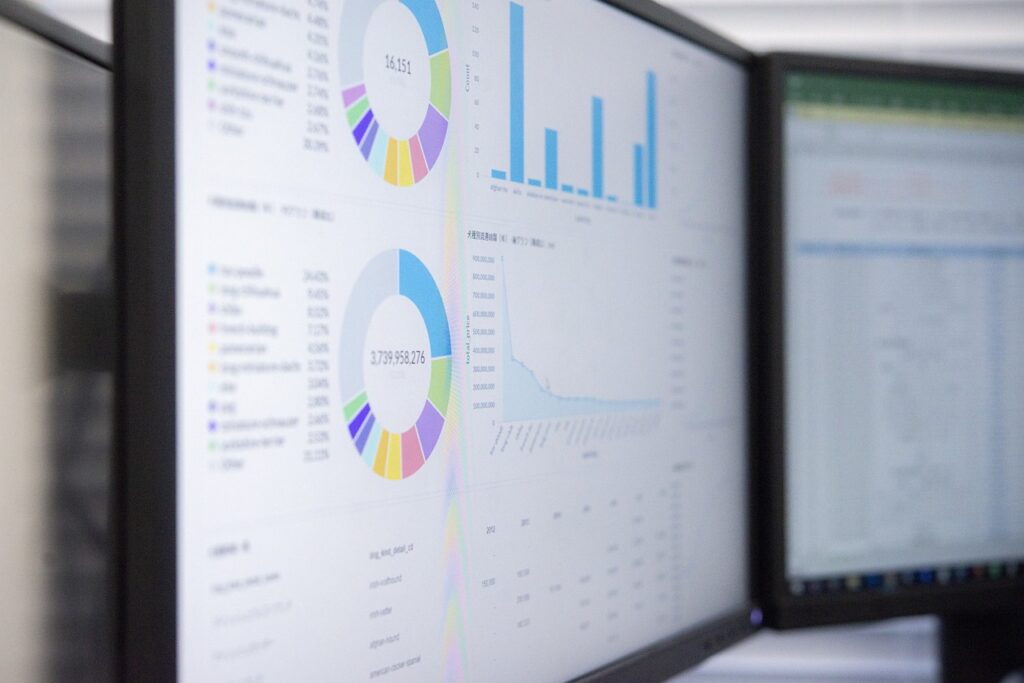Key takeaways
- A data analytics degree can lead to financially rewarding career opportunities.
- Freelance Data Analysts earn up to $167 per hour depending on their qualification, experience, and expertise.
- Junior Data Analysts earn an average annual income of $73,069 as per Glassdoor.
- Job opportunities for data analytics graduates include Data Analyst, Data Scientist, Operational Research Analyst, and more.
- To become a Data Analyst, or be eligible for a related profession, a bachelor’s degree in data analytics or related field is essential.
- Specializations within data analytics include Biomedical and Healthcare Information Analytics, Financial Analytics, Business Analytics, Market Research Analytics, and more.
- George Mason University, Rowan University, Thiel College, and Western Kentucky University are just some colleges and universities offering a degree in data analytics.
- Students can also pursue a bachelor’s or an online master’s data analytics degree from Southern New Hampshire University or Purdue Global University.
Do you just love crunching numbers? If yes, then a career in data analytics might very well be the ideal path for you. According to a report by CNBC, data analytics is among the most sought-after skills in 2024, especially across freelance platforms such as Upwork. As per the report, Data Analysts are among the highest-earning skilled freelance professionals charging up to $167 an hour.
Students with a natural inclination toward mathematics, and statistics, a keen eye for detail, and the desire to pursue a financially rewarding career path, should consider a data analytics degree. Read on for information on different analytics degrees, specializations, career opportunities, and more.
What is data analytics?
The term data analytics is pretty self-explanatory. It is simply the process of analyzing and interpreting datasets to find identifiable patterns, correlations, or trends. To be able to do so, professionals must possess expertise in mathematics, computer science, and statistics, making data analytics an interdisciplinary field.
As the business landscape evolves, the demand for skilled professionals able to analyze and interpret large volumes of complex data is rising. Data Analysts are able to take large volumes of data, turning them into actionable insights enabling data-backed decision-making.
According to the United Bureau of Labor Statistics, Data Analysts or Data Scientists typically possess a bachelor’s degree in data analytics or a relevant field. Some employers prefer job applicants with higher educational qualifications such as a data analytics master’s degree or a doctoral degree in a related field.
All you need to know about a data analytics degree

Aspiring data analytics professionals can pursue a degree in data analytics at varying levels. Ideally, a bachelor’s degree in data analytics should be the first higher education program they enroll in, moving on to a master’s and maybe even a doctoral degree to enhance career prospects.
However, students can also explore shorter programs such as the associate degree, the 6 months data analytics stem degree, or certifications. The value offered by each varies drastically, and so do the career opportunities for which graduates are eligible.
Associate in data analytics
At the associate level, you can pursue an Associate of Science in Data Analytics from several renowned colleges in the US, including Southern New Hampshire University. Associate degrees typically span over two years and focus on building a strong foundation in data analysis.
At the associate level, students learn fundamental skills such as:
- Problem-solving using data-backed decisions.
- Quantitative and qualitative data analysis
- Writing detailed reports for industry professionals and laymen.
- Practical application of data analytics.
With an associate degree, you will be eligible for entry-level jobs such as a junior-level data analyst. According to Glassdoor, Junior Data Analysts earn on average $73,069 per annum as of October 2024.
Bachelor’s degree in data analytics
A bachelor’s degree in data analytics is a four-year program that is the ideal entry-level qualification for aspiring data analysts. Through the four-year program, students build various professional competencies and develop interdisciplinary skills essential for a successful and progressive career in data analytics.
At the bachelor’s level, students develop a comprehensive set of skills including:
- Programming
- Machine learning
- Problem-solving
- Data visualization
- Statistical analysis
- Data preparation
With an undergraduate degree in data analytics, graduates can apply for a variety of jobs including:
- Data Scientist
- Actuary
- Computer and Information Research Scientist
- Financial Analysts
- Mathematicians and Statisticians
We provide a detailed career guide and average salaries for different job roles in data analytics further on in our guide.
Data analytics master’s degree
Professionals looking to further expand their career prospects should consider pursuing a data analytics master’s degree. It not only provides job applicants with a competitive advantage but also enhances their chances of obtaining promotions.
A master’s degree typically spans from 1 to 3 years, depending on the program, and an individual’s learning pace. During the program, students learn advanced skills and build professional competencies gearing them toward a career in management.
Skills learned in a master’s program include:
- Business data analytics
- Applied machine learning
- Data management
- Advanced programming languages including R, Python, SQL
- Deep learning
With a master’s degree, graduates can explore a variety of job opportunities including:
- Machine Learning Engineer
- Data Scientist
- Market or Consumer Analyst
- Operations Analyst
Education Pays, 2021, a report by BLS shows that professionals with a master’s degree earn on average $1,574 per week and have lower unemployment rates than those with a bachelor’s degree or a high school diploma.
PhD in data analytics
A PhD is the ideal qualification for those with a vested interest in research, making discoveries in a particular field, and a love for data and analysis. The program spans over 4 to 5 years and requires deep research within a subfield of data science and analytics. The skills learned and value gained will vary depending on the line of study, and research chosen by a professional.
With a PhD in Data Analytics, graduates can obtain job roles such as:
- Chief Data Officer
- Business Intelligence Developer
- Senior Data Scientist
- Senior Data Analyst
Education Pays 2021, by BLS, reports that PhD holders earn $1,909 per week and have extremely low unemployment rates.
Typical program curriculum of a bachelor’s degree in data analytics
Given that a bachelor’s degree is the ideal starting point for a successful career in data analytics, here is the typical program curriculum you can expect to undertake during your four-year college program.
The exact curriculum varies depending on the college, degree level, and more. However, most undergraduate data analytics programs require completion of 120 to 130 credit hours. Furthermore, students must meet minimum credit hour requirements for different course categories. For example, graduation requirements for a bachelor’s degree in data analytics from the University of Bridgeport require students to meet the following:
- General education courses – 33 credits
- Data analytics core-specific courses – 54 credits
- Data analytics elective courses -18 credits
Additionally, students must complete internships, and capstone projects to earn the total number of required credits to graduate. Courses can include:
- Fundamentals of Data Analysis
- Introduction to Statistics
- Business Intelligence and Data Management
- Data Visualization
- Foundations of Machine Learning
- Artificial Intelligence Solutions
Available specializations in data analytics
While electives provide some flexibility, allowing students to tailor their learning experience and potentially build a certain specialized skill set, specializations are a better option for students hoping to pick a career niche. Here are some available specializations within data analytics.
Biomedical and Public Health Analytics
Previously known as Biomedical informatics and health data science, the combined specialization combines biomedical, medical Artificial Intelligence, and health sciences with information technology and analytics to improve the overall healthcare system. Biomedical and Public Health Analysts help find solutions to some of the most pressing problems in the medical field.
Business Analytics
The specialization of Business Analytics enables students to build professional competencies such as skills, and learn technologies required to solve problems in the business field. These can include data management, data mining, predictive modeling, forecasting simulation, and more. Students can also pursue a Business Analytics degree if they are sure this is the niche career path they want to take.
Computational Analytics
Computational Analytics is a specialization with many subsets including machine learning, graph analytics, visual analytics, cybersecurity, SQL databases, and more. Combined these enable Computational Analysts to analyze large-scale data using computational and numerical methods and build and improve architectures to make analysis easier.
Data Visualization
Put simply, data visualization is displaying information using a multitude of visual formats including graphs and charts. However, this is a very important specialization as presentation is where half the skills of data analysts lie as it enables novices and non-technical professionals to be able to use the findings.
Social Science Analytics
If you too struggle with human interaction as did Sheldon in the popular TV series ‘Big Bang Theory’, Social Science Analytics might be the ideal specialization for you. It uses data to analyze human interaction and predict human behavior. It is a particularly useful subfield, especially for those with an interest in criminology.
List of colleges offering data analytics degree

At first glance, data science and data analytics may appear to be an extremely boring profession. And for some aspiring professionals that statement may stand true. However, for those with a passion for pattern identification, solving puzzles, critical thinking, and problem-solving, a career in data analytics might very well be a dream come true.
Here is a list of some highlighted colleges offering bachelor’s data analytics degrees in the US.
| College | Acceptance % | Graduation % | Tuition |
| St. Ambrose University | 74% | 63% | $34,570 |
| Thiel College | 82% | 50% | $35,450 |
| George Mason University | 90% | 70% | $13,404 in-state
$38,983 out-of-state |
| James Madison University | 78% | 82% | $13,092 in-state
$30,152 out-of-state |
| Rowan University | 77% | 68% | $14,952 in-state
$24,345 out-of-state |
| Golden Gate University | 83% | 35% | $11,088 |
| Western Kentucky University | 97% | 51% | $11,112 in-state
$27, 000 out-of-state |
Can you get an online data analytics degree?
Whether you are looking for an online master’s data analytics degree, a bachelor’s, or even an associate degree, several colleges across the US offer a plethora of online programs to make education more accessible. When it comes to data analytics, you will find all types of data analytics degrees online, even a PhD.
Post-pandemic, the demand for online learning programs has grown exponentially, and colleges across the world are adapting to meet the evolving needs of students. While there are significant benefits of online degrees, it may not be the ideal choice for everyone.
What are the benefits of an online data analytics degree?
Preferences and trends change over time. In recent years, the major trend change that we have seen is the rise in demand and preference for online programs, and classes for the many benefits online learning presents.
Flexibility
A traditional degree is restricting in many ways. It requires students to adhere to a schedule and take out time not just for class, but also commute. Whereas in an online program, students only need to take out the exact time needed to attend the class. Moreover, if enrolled in an asynchronous program, they don’t even have schedule restrictions.
Affordability
The cost of attending a traditional college degree includes tuition, transport, housing, and other utilities. For out-of-state or out-of-city college students, the overall cost of attendance is higher than it is for local students. However, if you choose to pursue an online program, you only need to take tuition into consideration, which in many cases is significantly lower for online data analytics degrees than for traditional degrees.
No geographical barriers
Whether you live in the United States, Germany, Bulgaria, or Svalbard near the North Pole, by choosing to pursue an online data analytics degree, you can obtain high-quality education from world-renowned colleges and universities. Moreover, online programs are a relatively hassle-free option as students don’t have to worry about obtaining a visa, arranging accommodation, financing expensive and lengthy travel, and more.
Convenience
Students can take their classes from literally anywhere provided they have an internet connection and their laptop. Even if you are in a synchronous online data analytics degree, you can still make it to that lunch date, or friends meetup as long as you carry your laptop with you to attend your class before or after saving the time spent commuting.
Self-paced learning
Whether you are a full-time student or a working professional, online programs enable you to take charge of your learning pace and experience. You can either choose to dedicate yourself to your studies entirely or opt to pursue part or full-time employment alongside your studies only taking classes once a week.
What are the disadvantages of pursuing a data analytics degree online?
However, it is important to note that pursuing a data analytics degree online is not all fun and convenient. Here are a few reasons why it may not be the ideal choice for everyone.
Self-discipline
With convenience and flexibility comes the need for self-discipline. In the absence of a preset timetable, ignoring studies becomes easier. Thus, one should only consider pursuing a bachelor’s or an online master’s data analytics degree if they are disciplined and dedicated enough to be able to see it through.
Time management
Additionally, distance education learners must have extremely good time management skills. Without time management, students may find themselves struggling to find the time to attend classes. Ideally, students should create a timetable for themselves and stick to it for maximum benefit.
Distractions
In the absence of a dedicated study area, you may find yourself distracted by noise and the inflow and outflow of humans. Make sure you create a distraction-free zone inside your house, go to a library, or find another place where you can study without being disturbed.
Lack of technical support
Distance education learners must be extremely self-reliant. They will not have access to campus resources and technical support. They should be prepared to deal with any technical challenge that they may encounter, and it is always safer to have a backup, especially for power and the internet.
List of colleges offering online data analytics degrees online
Here is a list of suggested colleges for an online data analytics degree. Keep in mind that the tuition rates mentioned below are the average tuition for bachelor’s programs and not for specific online data analytics degrees.
| College | Acceptance % | Graduation % | Tuition |
| Southern New Hampshire University | 87% | 34.2% | $15,380 |
| Western Governors University | 100% | 54% | $8,010 |
| Purdue University Global | 100% | 20% | $13,356 |
What does a data analyst do?

Data analysis is a multidisciplinary field and requires a lot more than just crunching numbers even though that is the primary task data analysts handle. At the core, they are problem solvers tasked with the responsibility of finding solutions to some of the most pressing problems organizations face.
To do so they take large volumes of seemingly unrelated data sets to find correlations, identify patterns, and compile findings into usable information for professionals and novices. Typical responsibilities of a data analyst include:
- Measure and track company performance
- Find ways to improve performance
- Help professionals understand consumer
- Identify trends and patterns including consumer behavior patterns
- Enhance operational efficiencies
What jobs can you get with a data analytics degree?
The role of a data analyst is not the only job you can get with a data analytics degree. The multidisciplinary field prepares students for a variety of careers. Here are some potential job opportunities graduates can explore and the average per annum income they can expect. Keep in mind that exact figures vary by qualifications and experience level.
| Job title | Average pay | Job growth rate |
| Financial Analyst | $99,890 | 9% |
| Management Analyst | $99,410 | 11% |
| Data Scientist | $108,020 | 36% |
| Operations Research Analyst | $83,640 | 23% |
| Data Architect | $117,450 | 9% |
| Market Research Analyst | $74,680 | 8% |
Industry overview and job market trends
As evidenced by the above national average job growth rates for nearly all listed job roles for graduates with a degree in Data Analytics, it is safe to say that the data analytics industry is thriving. We can also safely assume that the demand for talented data analysts is not about to wane anytime soon given the increasing shift toward technology.
Fortune Business Insights estimates the Data Analytics Market Size to grow with a CAGR of 27.3% between 2023 and 2030. At the end of 2023, the Data Analytics market value was $279.31 billion, with North America dominating over 34% of the global market.
The major growth in the use of analytics tools and software was seen during COVID-19. Despite all industries showing significant declines, AI software platforms, and analytic apps experienced increased usage as they enabled users to determine and pursue business opportunities in otherwise tumultuous times.
Data analytics trends
The latest trends in the analytics industry include:
- Data fabric architecture is gaining importance as it enables hybrid multi-could integrations enhancing data management efficiency by bringing data engineering, analytics, and other services from various services into one platform.
- However, data security is a persistent threat hindering the widespread adoption of multi-level data management and analytics integrations.
- Increased adoption of edge computing such as sensors, automation devices, and more are fueling the growth potential of the data analytics market as they allow for more data gathering.
- Among the different subsets of the data analytics market namely descriptive analytics, predictive analytics, augmented analytics, real-time analytics, prescriptive analytics, and diagnostic analytics, predictive analytics is dominating the overall market.
- The use of Artificial Intelligence and automation is on the rise specifically to streamline the data mining process, enhancing overall operational efficiency.
- Data analytics is used among all business segments including supply chain management, human resource management, enterprise resource planning, customer relationship management, and more, with supply chain management dominating the market share.
Alternate degrees you can pursue for a career in data analytics
A bachelor’s degree in data analytics is the ideal educational qualification for a career in the field as it prepares aspiring analysts with multidisciplinary skills. Graduates can pursue a career in a variety of fields and even tailor their learning experiences through specializations.
However, for those wanting to explore alternate options here are a few degrees that can potentially lead to a career in data analytics. Do keep in mind, that graduates may need to pursue additional certifications for a career in data analytics.
- Applied Mathematics – Followed by certifications to learn programming languages and additional proficiencies for data analysts.
- Computer Science – followed by a master’s in data engineering can make graduates eligible for a career in Machine Learning or Data Engineering.
- Data Science – This will prepare students for a career in the creation of data analytics tools and software, algorithms, and computational models.
- Computer Engineer – Graduates can explore career opportunities such as a computer systems analyst provided they choose relevant electives in Mathematics, Statistics, and the like.
- Finance/Economics – A relatively good option for those wishing to pursue a career as a financial analyst. However, additional certifications such as a 6 months data analytics stem degree are required.
Frequently asked questions about a data analytics degree

Link: https://pixabay.com/photos/question-mark-choice-decision-3839456/
Alt text: Questions about a data analytics degree.
Meta description: Find answers to frequently asked questions about a data analytics degree.
It is only natural to have a plethora of questions about the degree you hope to pursue. Make sure you seek the answers to them all before making a decision. Here are the answers to some commonly asked questions about a data analytics degree.
How to become a data analyst?
The first step to becoming a data analyst is to enroll in a bachelor’s data analytics degree or one of the alternatives mentioned above. Throughout the four-year program, students must focus on developing varied skill sets and take part in several projects to apply the skills learned and build a portfolio.
Additionally, students should seek experiential learning opportunities such as internships and part-time or remote jobs to gain professional experience before graduation. Doing so can enhance the likelihood of landing well-paying entry-level jobs.
What jobs can you get with a business analytics degree?
A business analytics degree is ideal for aspiring business analysts. Other job opportunities graduates can pursue include Market Research Analyst, Financial Analyst, and Operations Research Analyst.
How to get into data analytics without a degree?
While a professional degree is always the ideal way to prepare for a career in data analytics, a 6-month graduate STEM degree or program is an alternate path aspiring data analysts can take for entry-level supportive roles in the field. If interested, students can explore certifications such as the Google Data Analytics Certification.
What can you do with a data analytics degree?
A data analytics degree is a multidisciplinary program that prepares students for fruitful and financially rewarding careers in big data and similar industries. In today’s tech-driven economy, the demand for data analysts is at an all-time high. They can seek job opportunities in nearly all industries and private and public sectors.
What can you do with a business analytics degree?
A business analytics degree prepares graduates for varied career opportunities in different corporations. Potential job opportunities include Business Analyst, Market Research Analyst, and Operations Research Analyst.
Is a data analytics degree worth it?
If the booming industry growth and the astounding job outlook for potential career opportunities qualified data analysts can explore is an indication, then YES, a degree in data analytics is definitely worth it. Moreover, the industry is set to continue to grow as the increasing adoption of technology is increasing the data-gathering avenues.
Become a data analyst with a data analytics degree!
Even though several paths may lead to the top of the mountain, there is always one that is ideal. Instead of going round and round, by choosing alternate degrees, or trying shortcuts such as general certifications only to find out you must start all over, start right the first time.
Apply to one of the colleges offering a data analytics degree. If you need help with the college application process, All Bachelor Degrees offers free-to-use AI Tools such as an Essay Generator and a College Search Tool. Don’t be afraid to seek help from experts!
